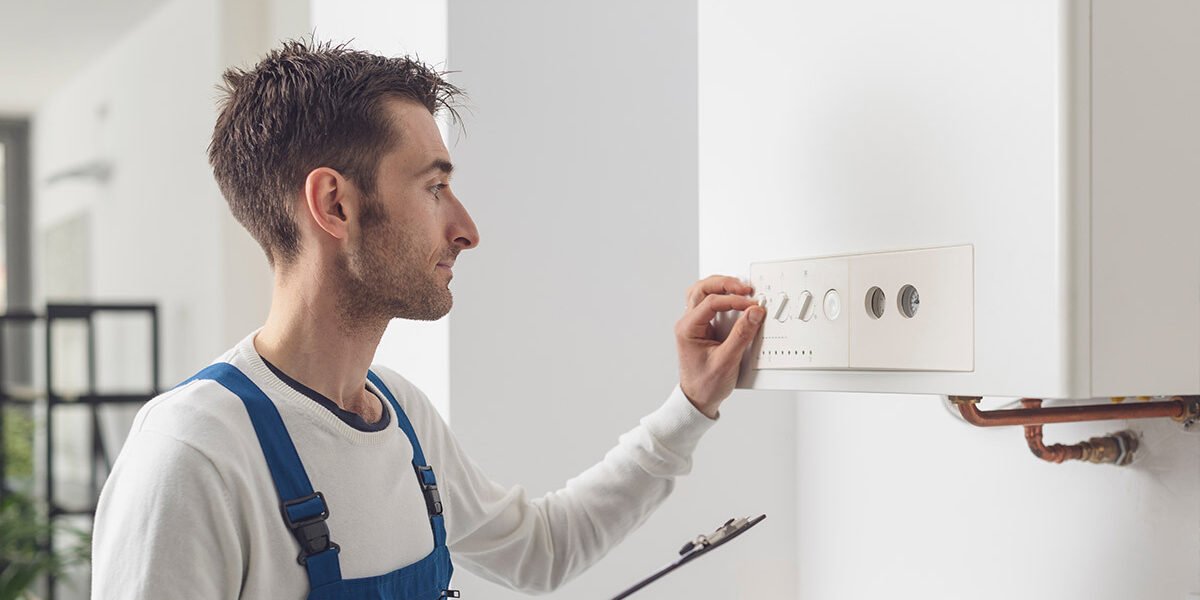The UK government’s initiatives to promote ECO-friendly practices have become increasingly dominant. One such initiative is the provision of free boiler replacement grants, which assist homeowners in upgrading their heating systems to more energy efficient alternatives.
Free Boiler Grant Scheme:
Heating comprises a significant portion of homeowners’ energy consumption, with traditional boilers often being inefficient and environmentally destructive. Older boilers, in particular, are harmful for their high carbon emissions and low energy efficiency.
Recognizing this issue, governments and environmental organisations worldwide have introduced schemes to encourage the replacement of outdated boilers with more efficient models. By doing so, they aim to reduce carbon emissions, control fuel poverty, and promote sustainable living practices.
Eligibility Criteria for Free Boiler Replacement Grants:
To determine eligibility for a grant for free boilers, specific criteria must be met:
- Homeownership: The grant is available to homeowners in the UK.
- Boiler Type and Installation Date: Eligibility requires that your current boiler is non-condensing, typically indicating boilers installed before 2005. Boilers installed after 2005 are generally condensing models and, unfortunately, do not qualify for this grant due to their already enhanced efficiency.
These criteria aim to assist homeowners in reducing energy costs and CO2 emissions by updating outdated and inefficient heating systems.
- Energy Performance Certificate (EPC): To qualify for the free boiler grant scheme criteria, your EPC rating must be below D, or E, F, and G.
- Receipt of Qualifying Benefits: To qualify for a gas boiler replacement grant, someone residing in the property must be receiving one of the specified tax credits or benefits, including:
- Income-based Job seeker’s Allowance (JSA)
- Income-related Employment & Support Allowance (ESA)
- Income Support Allowance (ISA)
- Working Tax Credit (WTC)
- Child tax credit (CTC)
- Universal Credit (UC)
- Pension savings Credit
- Pension Guarantee Credit
- Child benefit
- Housing benefit
Application Process:
- Find an ECO4 installer: Locate qualified installers in your area who are certified to work under the free boiler government scheme. Additionally, you can choose freeboilersgrants to complete all the paperwork on your behalf till the installation of the free boiler.
- Submit an application: We will guide you through the application process, submitting the necessary paperwork and submitting the application.
- Check your eligibility: After an application submission, we check your eligibility to confirm whether you qualify for the ECO4 boiler scheme.
- Home Energy Survey: After meeting with eligibility, our professional energy surveyor will visit your home to evaluate your heating system and energy performance certification rating for your eligibility.
- Get approved and installation: Upon approval, we will schedule a date for the new boiler installation with minimal disruption, and you’ll begin enjoying the benefits of your new, ECO-friendly heating solution.
Benefits of Free Boiler Replacement Grants:
- Financial Relief:
One of the most effective reasons to consider applying for grants for free boilers is the significant financial relief they provide. Boilers are an essential component of any home’s heating system, but they can also be costly to repair or replace, especially for families on tight budgets.
By providing funding for boiler upgrades or replacements, these grants reduce the financial burden on households, allowing them to maintain a comfortable living environment without sacrificing other essentials.
- Energy Efficiency:
In addition to reducing financial stress, free boiler grants promote energy efficiency, which is a crucial factor in controlling climate change and reducing CO2 emissions. Older boilers are often less energy efficient, leading to increased greenhouse gas emissions and higher fuel consumption. These grants contribute to lower carbon footprints and a more sustainable future by incentivising the installation of energy efficient boilers.
- Improved Home Comfort:
A reliable and efficient boiler is necessary for maintaining a suitable living environment, particularly during the colder season. Older boilers are inclined to inefficiencies, resulting in inconsistent heating and fluctuating temperatures throughout the home. By updating to a newer, more efficient boiler through a grants for free boilers program, homeowners can enjoy consistent warmth and improved comfort levels, enhancing their overall quality of life.
- Health and Safety:
Above, comfort and financial savings, free boiler grants also address health and safety concerns associated with outdated heating systems. Older boilers are more sensitive to the home and environment, and carbon monoxide leaks create significant risks to occupants’ health and safety. By Facilitating the replacement of these outdated units with modern and safer units, free boiler grants help to control such risks, ensuring a healthier and safer living environment for families.
- Long-Term Savings:
While the upfront cost of installing a new boiler may appear terrific, it’s essential to consider the long-term savings associated with energy efficient heating systems. New boilers are more efficient and require less frequent repairs and maintenance, lowering operating costs. Homeowners can enjoy significant long-term savings on energy bills by taking advantage of free boiler grants to upgrade to a more efficient unit.
Conclusion:
Free boiler replacement grants are essential in promoting energy efficiency, reducing CO2 emissions, and addressing fuel poverty among homeowners. These grants contribute to global efforts towards sustainable development and environmental conservation by incentivising the upgrade to more ECO-friendly heating systems. However, to maximize their impact, it is essential for governments and organisations to streamline the application process, allocate sufficient funding, and expand eligibility criteria to reach a wider demographic. Ultimately, by investing in energy-efficient technologies, we can develop a greener, more sustainable future for future generations.
